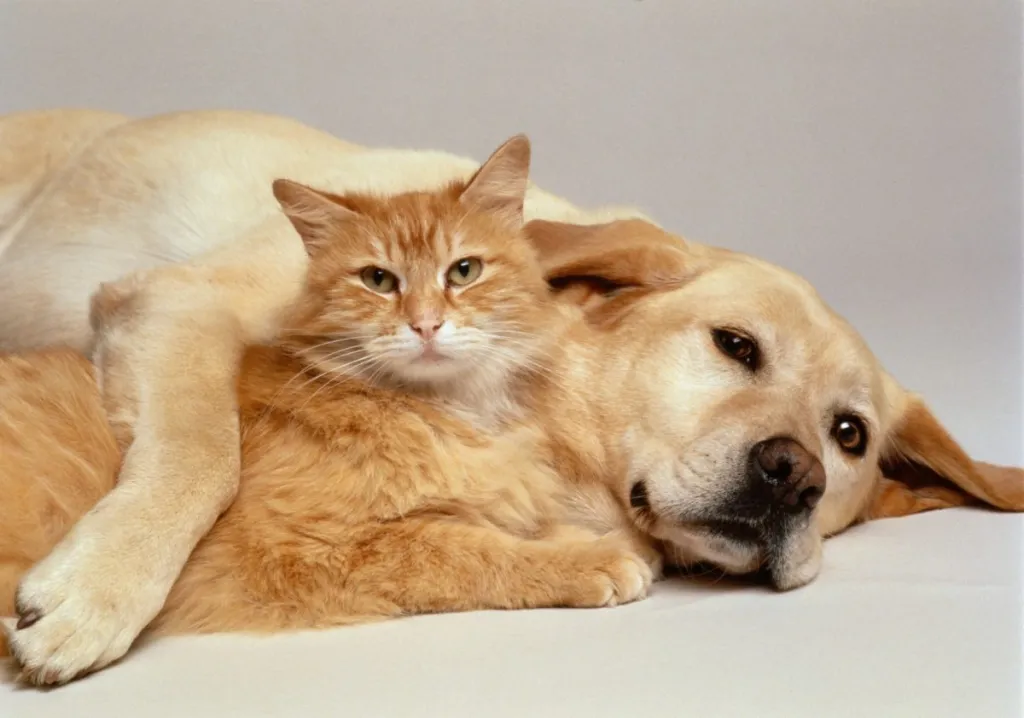Are you a dog person or a cat person? Almost all of us have been at the receiving end of the question at some point. Without a doubt, our affection for our furry friends speaks volumes, but among the two, dogs might have captured our hearts more completely than cats. According to CBS News, a new study has shown that pet owners have a greater tendency to shower affection on their dogs as opposed to their cats. Of course, there is more nuance to the study than an overwhelming triumph of canines over felines, as Newsweek reveals.
Why pet preference is higher for dogs than cats
The research, published in Frontiers in Veterinary Science, was led by scientists at the University of Copenhagen. The team looked at the attitudes of pet owners aged 18 to 89 in three countries — Denmark, the United Kingdom, and Australia — to gauge their responses towards their cats and dogs.
While assessing this adoration, the study used the esteemed Lexington Attachment to Pets Scale (LAPS). Given that, the research considered responses to statements such as “I believe that my pet is my best friend.” The project looked at replies to these questions to gauge their results. Additionally, they considered if the owners would purchase pet health insurance, as well as their readiness to invest in life-saving treatments. These factors helped them understand how pet parents care for their four-legged companions. The survey included a staggering 17,747 pet owners, with a near-even split between canine and feline owners.
Consequently, a striking revelation emerged — dog owners consistently ranked higher on the LAPS scale. It was evident that dogs were more frequently insured by their owners, who were simultaneously more willing to go the extra mile for life-saving interventions. Perhaps one could extrapolate that the devotion towards dogs —characterized by a unique emotional connection — drives their ever-growing popularity.
Several parameters influenced the study on pet owners
According to the authors, however, “it does not seem to be a universal phenomenon that people care much less about their cats than their dogs.” In fact, the researchers regarded the division between dogs and cats in the U.K. as “very modest.”
It would be misleading to credit canine behavior as the only factor for their triumph. Instead, it’s the cultural norms surrounding our four-legged friends that serve as the real influencers of the care they receive. According to this “cultural hypothesis,” rivalry between the two animals in media is often exaggerated and mirrored by respective pet owners. This representation in media occurs, despite cordial relationships existing between many of our furry companions in real life.
For example, in Mexico and the United States — where indoor living for cats is commonplace — the human-feline connection appears to flourish. These cats, confined within walls, form intimate connections with their owners, and thereby invoke a higher level of care.
On the flip side, the level of care dwindles in countries like the U.K. and Denmark. In these places, many felines relish — and have no choice but to engage in — outdoor escapades. It is also obvious that the amount of time spent, as well as the degree of dependency the animal and human share, play crucial roles in fostering the pet-owner bond.
Limitations on the research
Finally, the sample size only takes into account the pet culture of a few European nations. It wholly ignores other, non-Eurocentric nations worldwide. Given that, the authors recognize the limits of their own study. In their words, “the degree to which owners care about their dogs and cats is not limited or otherwise defined solely by the nature of the animals and may continue to evolve as human lifestyles change.”









